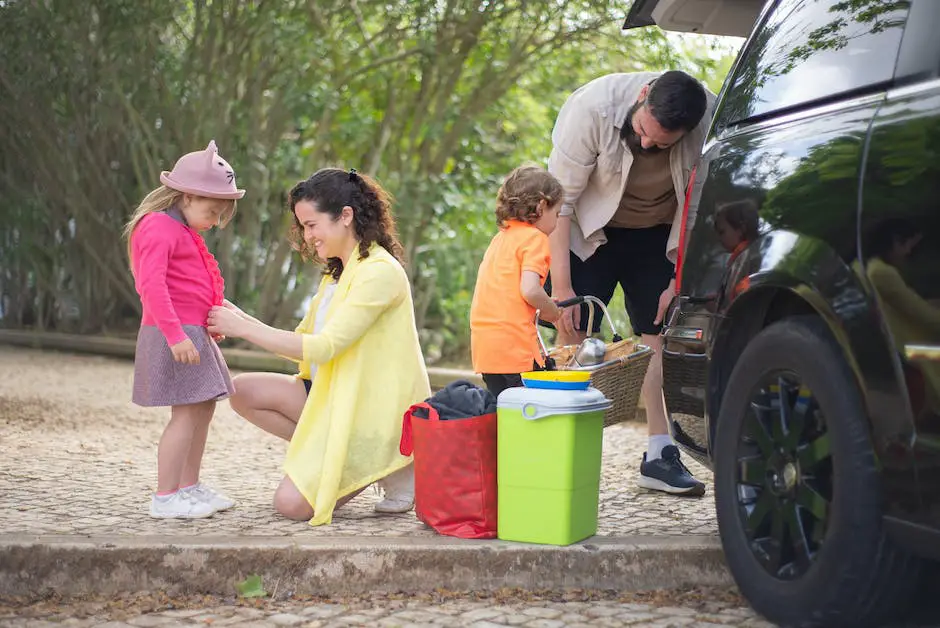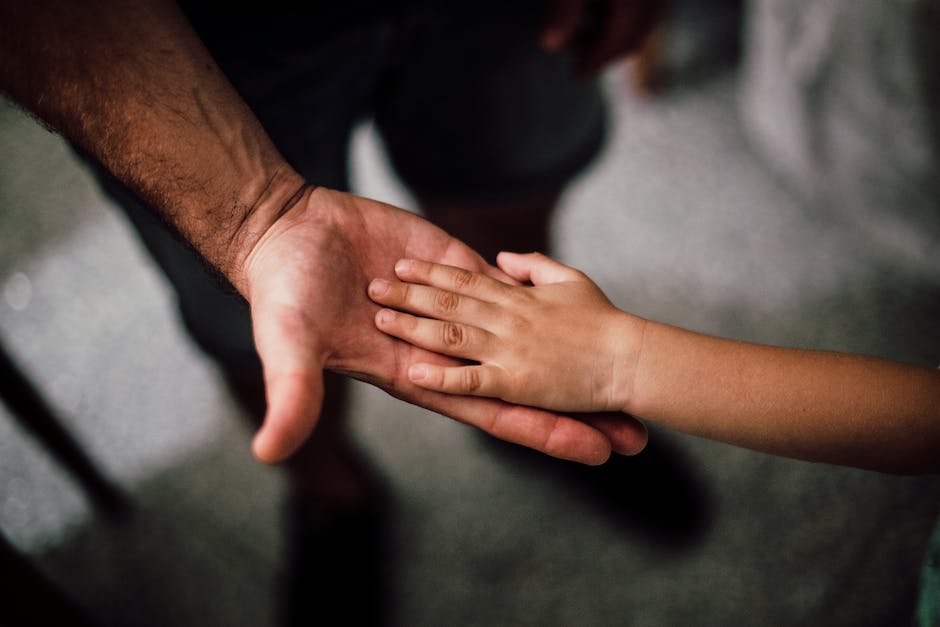In our ever-accelerating century, a significant shift in parenting approach is steadily gaining recognition – mindful parenting. This method of parenting, imbued with present awareness, active listening, and unstinting empathy, is a beacon in these rapid and tech-driven times. It provides a fresh lens through which parents can interact, guide, and teach their children, resulting in inspirational and tangible benefits. Even more compelling is the profound connection between mindful parenting and emotional resilience in children, a skillset that empowers them to tackle life’s inevitable adversities with strength and grace. This essay elucidates the essence of mindful parenting coupled with its methodologies, demonstrating its pivotal role in nurturing emotional resilience in children, seasoned with compelling case stories and practical examples.
The Essence of Mindful Parenting
The Art of Mindful Parenting: A Deeper Understanding and Steps to Implement
A warm welcome to all the wonderful parents navigating their way through parenthood. On this beautiful journey, every day brings its own challenges, joys, and lessons. Amidst this whirlwind of emotions, there’s a concept that’s stirred the parenting world recently – Mindful Parenting. But, what exactly is it, and how can it be effectively implemented? Let’s delve into this enlightening concept to unveil its profundity and potential benefits.
Mindful Parenting, a term coined by early childhood experts, is more than just a buzzword. It’s a method of raising children by being fully present, aware, and non-reactive. It emphasizes active attention to the needs, desires, and emotions of children, and a willingness to understand their perspective, rather than adopting a controlling or mindless approach.
So, how can this concept of mindful parenting be put into action? Here are some simple yet impactful ways to make it part of everyday parenting:
- Cultivate Presence: Being truly present in each moment is the cornerstone of mindful parenting. It’s about disconnecting from the digital world and distractions to connect with our children genuinely. Cherish these moments, whether they’re bedtime stories or playful giggles; they’ll be fleeting memories before we know it.
- Practicing Patience: Parenting does test patience, and sometimes we may find ourselves losing our cool. However, mindful parenting calls for taking a pause before reacting. It encourages us to tune in to our emotions, acknowledge them, and then respond constructively.
- Active Listening: Children communicate in various ways, not always with words. Hence, it’s imperative to listen carefully to their verbal and non-verbal signals. From their laughter, cries, to their silence, every signal is a message waiting to be understood with empathy and compassion.
- Understanding and Acceptance: Mindful parenting emphasizes understanding children for who they are, not who we want them to be. It involves recognizing and accepting their individuality and fostering an environment where they feel loved and safe.
- Model Mindfulness: As parents, we are our children’s first teachers; they mirror our actions and attitudes. By incorporating mindfulness into our daily lives, they too will learn to embrace this way of life with open arms.
- Nurturing Emotional Intelligence: Encouraging children to identify and express their emotions is a great way to nurture their emotional intelligence. From allowing them to cry to encouraging them to express their joy, every emotion deserves validation.
- Appreciating the Ordinary: Finally, mindful parenting is about finding joy in the ordinary. It encourages gratitude for routine tasks, be it munching on breakfast cereals or listening to raindrops on the windowpane, revealing the extraordinary within the ordinary.
In conclusion, mindful parenting is about being present and connected with each unique and precious moment with our children. It’s not about perfection but about giving our kids a loving, understanding, and safe environment to grow and become the best versions of themselves. As parents navigate their way through this journey, remember, the goal isn’t to master mindful parenting but to allow it to guide us in fostering a nurturing bond with our children.

Skills in Developing Mindful Parenting
Mastering the Art of Mindful Parenting: Key Skills To Foster
Mindful parenting – a concept that transforms the traditional approach of parenting to a more understanding, empathic, and conscious one. Now, you may be wondering ‘how can I further improve my mindful parenting skills?’ Here’s a roadmap to assist you in enhancing your abilities to become a more mindful parent.
-
Empathy: Bedrock Of Mindful Parenting
Empathy allows parents to step into their kids’ shoes, perceive their emotions and respond to their needs in the most appropriate manner. By developing empathy, parents can better understand their children’s emotions and feelings, which is crucial in practicing mindful parenting.
-
Practicing Non-Judgmental Awareness
Being aware without judgment is a fundamental skill for mindful parenting. This involves mindful observations of your child’s behavior without labeling them ‘right’ or ‘wrong’. See things as they are, not how you want them to be – this is important in cultivating a non-judgmental mindset.
-
Self-Regulation: Remaining Calm In The Storm
In stressful situations, parents often react impulsively, which does not benefit the child or the parent. Through self-regulation, mindful parents develop the ability to manage emotions responsively rather than reactively. It’s not about suppressing emotions, but understanding and managing them efficiently.
-
Compassionate Discipline
Mindful parenting is not anarchy – rules and discipline remain important. However, the key here is to employ compassionate discipline, that is discipline driven by love, respect, and understanding. The focus should be more on teaching life lessons rather than punishing.
-
Identify Triggers
We all have triggers that cause us to react in less than ideal ways. Identifying your triggers helps to prevent knee-jerk reactions and makes room for mindful responses. By acknowledging these triggers, parents can make a conscious choice to respond differently, promoting harmony and understanding.
-
Prioritize Mindful Closure
Just as beginnings are important, endings matter too. A mindful closure, to either an activity or a day, can be a quality family time where you reconnect and express your love and gratitude. This could be as simple as a bedtime story session or a goodnight kiss.
Remember, the journey to mindful parenting is a continuous learning process. Perfection isn’t the end game but progress is. As you implement these skills, you will start noticing a positive shift both in yourself and your relationship with your kid. High five to that and happy parenting!

Emotional Resilience in Children
Every parent wants to see their child grow up as a strong, self-assured individual who can navigate life’s ups and downs with grace. This is where emotional resilience comes into play. That’s right! Emotional resilience, often considered the unsung hero in the world of parenting, is a pivotal quality that children need to develop from early on. But what exactly is emotional resilience, and why is it so important for our children?
Emotional resilience can be defined quite simply as the ability to adapt and bounce back when things don’t go as planned. Technically, it’s the capacity to withstand stress and catastrophe. In the context of a child, it’s about them learning, growing, adapting, and persevering despite the challenges and setbacks they may face. It’s about harnessing the ups and downs of life to come out stronger and more adaptable.
Now, why is emotional resilience so essential for our children? Well, think of emotional resilience as an internal compass. The compass doesn’t dictate where the ship should go, but it gives the sailors the confidence to explore unchartered waters without the fear of getting hopelessly lost. Similarly, emotionally resilient kids don’t shy away from new experiences, difficult situations, or unfamiliar feelings. They know they have the wherewithal to handle what life throws at them.
Apart from this, emotional resilience helps children view setbacks as opportunities rather than obstacles. Those with emotional resilience respond to life’s speed bumps by dusting themselves off, learning from their experiences, and finding new ways to move forward. This quality can help children cultivate a growth mindset, leading to greater success in school, relationships, and personal interests.
Emotional resilience also promotes greater overall emotional health and helps children understand and process their feelings better. This, in turn, fosters good communication skills, leadership qualities, and strong relationships.
We can’t protect our children from the lows of life, but we can equip them with the tools to handle them better. As parents, we must foster an environment at home that supports the development of emotional resilience. This can be done by creating a safe space for expressing emotions, employing supportive communication, encouraging problem-solving skills, promoting healthy risk-taking, and demonstrating unconditional love and support.
Equally important is to lead by example. Let’s show our children how we handle obstacles, how we bounce back from setbacks, and how we manage stress in a healthy way. This will not only aid them in building emotional resilience, but will also foster a positive parent-child relationship based on understanding, trust and love.
In conclusion, emotional resilience is an essential life competence that we owe to our children. It is a journey, not a sprint. So let’s take it one day at a time, strengthening our children emotionally, just as we do physically and academically. Because a child empowered with emotional resilience today is a leader of tomorrow!
Remember, parenthood is a labor of love. Most importantly, let’s enjoy every step of it and all the amazing individuals our children are becoming. As we often say, the days are long, but the years are short, so let’s make the most of this incredible journey! Here’s to raising emotionally resilient children!

How Mindful Parenting Nurtures Emotional Resilience
Parenting is truly a journey of a lifetime filled with ups, downs, and many moments in between. Now, let’s venture on this journey of mindful parenting and delve into the many ways it cultivates emotional resilience in our little ones. Since we already discussed the layers of mindful parenting from active listening, acceptance, and emotional intelligence development, let’s now delve into the sets of skills you need to navigate successfully.
Being empathetic is a vital key aspect in mindful parenting—it’s what enables parents to attune and respond to their children’s emotional needs appropriately. Empathy is a form of deep understanding and sharing of your child’s feelings and experiences. By offering a listening ear and responding with empathy, your child learns to understand and express their emotions effectively— a vital aspect of emotional resilience.
We then move along to practicing non-judgmental awareness. Just as we observe our own emotions without labeling them as good or bad, we practice the same for our children. Emotions are neither wrong nor right, they simply are. This mindful approach assures your child that it’s okay to feel, thereby promoting the development of emotional resilience.
Next to the plate, we have self-regulation. One of the best practices in mindful parenting is managing our own feelings first before addressing our child’s. By modeling this, children learn to manage their emotions too, validating them as nurturers of emotional resilience.
Compassionate discipline flows from the heart. It involves setting boundaries and guiding behavior in a loving, respectful way that builds a child’s emotional resilience. Compassionate discipline is naturally corrective, not punitive, allowing the child to learn from mistakes and make amends in a loving atmosphere.
Equally important in mindful parenting is identifying triggers, yours and your child’s. Recognizing what stirs emotional discomfort creates a space for growth and the development of resilience.
Lastly, we have the act of prioritizing mindful closure. It’s the process of cooling down, discussing, and making amends after conflict or stressful situations. It reinforces the fact that it’s okay to make mistakes—as long as we learn and grow from them.
The journey doesn’t stop here. Emotions have facets, and thus, resilience has multiple layers. Emotional resilience is not just about bouncing back from difficulties; it’s characterized by continuous growth and the ability to adapt to challenges and setbacks. In nurturing this trait, you are building your child’s internal compass for navigating life, allowing them to perceive setbacks as opportunities for growth.
Promoting emotional health empowers your child to better understand and process their feelings. Mindful parenting encourages the creation of a supportive environment at home for the development of emotional resilience. It’s leaving no room for judgment but filled with acceptance and love.
The attitude towards managing obstacles, setbacks, and stress matters too. Leading by example in handling these situations enables the child to learn practical ways of problem-solving, making them emotionally strong.
Taking it all together, emotional resilience becomes an essential life competence for children. Building emotional resilience is not an overnight miracle; it’s a gradual process, cultivated one day at a time. Indeed, parenthood is a labor of love, where the purest joy comes from enjoying the process of raising emotionally resilient children.
At the end of this journey, you’ll realize that mindful parenting is more than a practice—it’s truly a lifestyle. Your constant dedication toward this, your labor of love, is building the strong foundations of emotional resilience in your children. The benefits you’ll reap won’t just be seen in their childhood, but throughout their entire lives. That, dear parents, is the beauty of mindful parenting.

Case Stories and Practical Examples of Mindful Parenting
Mindful parenting is a journey – a path charted with conscious effort, observation, and understanding. Providing real-life examples of mindful parenting, there are myriad ways that this approach positively impacts children’s emotional resilience. Mindful children approach life with emotional strength, offering them a fruitful way of navigating the highs and lows life often brings.
One practical mindful parenting technique is validating children’s feelings. Acknowledging their feelings allows them to feel worthy of having emotions, increasing their self-awareness, self-esteem, and thus, emotional resilience. The simple act of acknowledging emotions can help create a bond of trust and mutual understanding.
Emotional literacy is another supportive tool in the mindful parenting toolkit. It is the ability to recognize, understand and appropriately express our emotions. By engaging in daily open-ended conversations about emotions, children are equipped with a vital language they can use to navigate their inner world. This demonstration of emotional literacy fosters their ability to cope with feelings and setbacks in a healthier way. As a result, they become less evasive of problems and start seeing such situations as opportunities for growth.
Another real-life manifestation of mindful parenting is practicing gratitude. It’s easy to let the day-to-day challenges overshadow the small but meaningful aspects of life. By expressing gratitude – a “thank you” at dinner or appreciating a beautiful sunrise – parents can model a positive mindset, promoting well-being, fostering resilience, and nurturing a sense of peace and fulfillment.
Working on conflict resolution is a strong aspect of mindful parenting, too. Parents can teach children how to handle conflict mindfully by navigating through disagreements with their spouse in a respectful manner. These instances of resolving conflict amicably demonstrate problem-solving skills and show children how to be resilient, improving their emotional intelligence and resilience.
Yet another real-life example lies in the area of self-care. By maintaining a personal self-care routine and conveying its importance to your children, parents model self-love and self-respect. Through this, not only do children learn to address their needs, but also understand that everyone, including their parents, has limits and needs time to recharge. This understanding can be beneficial in building emotional resilience, particularly when dealing with interpersonal relationships.
The journey of mindful parenting might seem challenging, but the outcomes make it worthwhile. Teaching emotional resilience takes consistency and perseverance, and through mindful parenting, children can learn much-needed resilience tools through observing and experiencing real-life situations. All these practical actions demonstrate the immense potential in loving parenting, equipping children to lead healthier, happier and resilient lives. Truly, mindful parenting continues to make the world a better place, one family at a time.

Cultivating mindfulness in parenting promotes an environment that nurtures emotional resilience, equipping children with the skills necessary to adeptly navigate the labyrinth of life. The ability to remain flexible in the face of adversity, adjust to change and recover from setbacks all find their roots in emotional resilience. With regular practice, parents can foster these qualities in their children, shaping them to become resilient individuals, capable of thriving amidst challenges. The narratives and examples sprinkled throughout this explanation serve as real-world evidence of the power and effectiveness of mindful parenting. They shout a clarion call to parents, urging them to embrace this parenting style for the enhancement of their children’s emotional wellbeing and overall growth.

